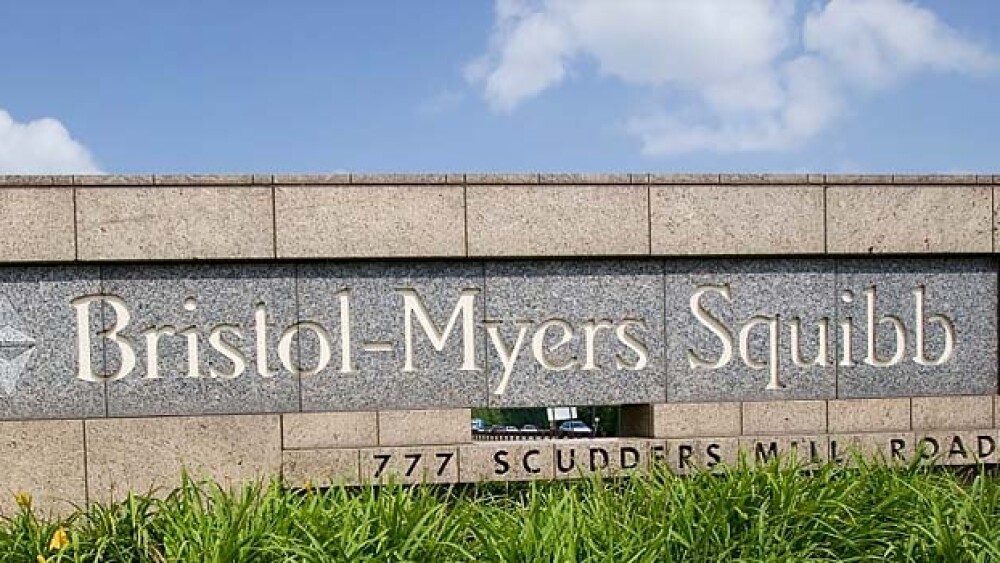Bristol-Myers Squibb and South San Francisco-based CytomX Therapeutics have been collaborating since 2014, a deal that was boosted in 2017 when Bristol-Myers Squibb added up to eight additional targets using CytomX’s Probody platform.
Bristol-Myers Squibb and South San Francisco-based CytomX Therapeutics have been collaborating since 2014, a deal that was boosted in 2017 when Bristol-Myers Squibb added up to eight additional targets using CytomX’s Probody platform. But now, as Bristol-Myers reprioritizes its programs in the wake of the Celgene acquisition, it has terminated three of those discovery programs. Investors responded, resulting in CytomX shares slumping as much as 30 percent at the news.
Bristol-Myers Squibb reportedly told CytomX shortly after announcing the Celgene deal that it was terminating three “collaboration discovery targets.” Those three targets had the potential of bringing in $448 million to CytomX via various development, regulatory and commercial milestones.
Portfolio reviews are not uncommon, particularly after a change in leadership or a major acquisition. Recently, Paris-based Sanofi ended a four-year-old collaboration with South San Francisco-based Myokardia, returning all rights to mavacamten and MYK-491 to MyoKardia. During their partnership, Sanofi paid MyoKardia about $230 million in funding.
Although undoubtedly not good for the small biotech company, CytomX presented quite a bit of progress in other areas at its 2019 Research and Development Day presentation.
For example, the company indicated that its CX-072 Anti-PD-L1 probody therapeutic monotherapy continued to have good safety and durable anti-cancer activity in its expansion cohorts. CX-072 is a wholly owned probody therapeutic program that targets PD-L1. In its PROCLAIM-CX-072 dose escalation study, in 24 patients it showed tumor shrinkage, including four partial responses, one confirmed partial response (ongoing), two unconfirmed partial responses in patients who are off study and one unconfirmed partial response that is pending confirmation.
It also presented preliminary data from the study at 10 mg/kg doses in patients with triple negative breast cancer (TNBC), undifferentiated pleomorphic sarcoma (UPS), cutaneous squamous cell carcinoma (cSCC) and anal squamous cell carcinoma (SCC). Additional expansions in Merkel cell carcinoma, cancers with high tumor mutational burden (hTMB), thymic cancer and small bowel adenocarcinoma are currently in progress.
For those trials, preliminary data in 34 efficacy evaluable patients showed anti-cancer activity consistent with historical data from other PD inhibitors.
The drug is also being evaluated in combination with Yervoy (ipilimumab) and was showing anti-cancer activity and a favorable safety profile.
Another drug, CX-2009, a first-in-class CD166 targeting probody drug conjugate was also showing anti-cancer activity and an encouraging safety profile. CX-2009 is a wholly owned probody drug conjugate. It is conjugated with the DM4 payload, which is a clinically-validated toxin CytomX licensed from ImmunoGen.
The company has finished its PROCLAIM-CX-2009 dose escalation trial in patients with breast, castration-resistant prostate, cholangiocarcinoma, endometrial, head and neck, non-small cell lung and ovarian cancers. Maximum tolerated dose (MTD) was not reached.
“These preliminary data from our ongoing PROCLAIM program provide additional proof of concept for both CX-072 and CX-2009, as well as the Probody platform itself,” stated Rachel Humphrey, CytomX’s chief medical officer.
She went on to say, “CX-072 continues to behave as designed with a safety profile as monotherapy and in combination that has the potential for meaningful differentiation from other PD-pathway inhibitors, while maintaining the expected efficacy for the class.”
It’s easy to focus on Bristol-Myers Squibb pulling three of its programs, but the two companies are still collaborating on nine other targets, including a Phase I/II trial that will generate preliminary data sometime this year. Sean McCarthy, chairman, president and chief executive officer of CytomX, told the San Francisco Business Times that Bristol-Myers’ decision “doesn’t reflect negatively on the overall program.”
And the company indicates that it has $465 million in cash, equivalents and short-term investments, which is enough to operate into at least 2021.





